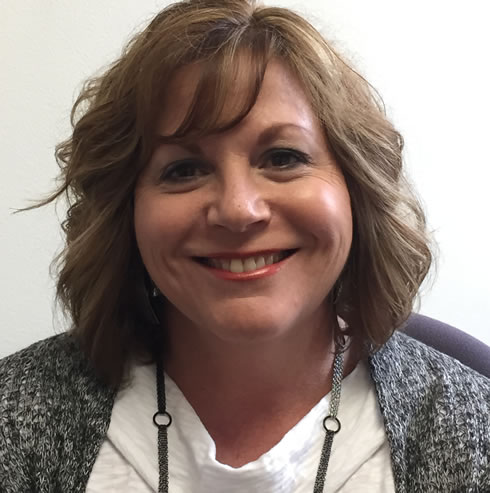Knowledge is Power

The Rogel Cancer Center Patient Education Program Empowers Patients and Caregivers
A huge challenge facing cancer patients is trying to remember and make sense of complex medical information that comes with any diagnosis. Cancer lingo includes impossibly long words like cholangiocarcinoma, pheochromcytoma and adenocarcinoma, just to name a few. You might have a general idea about treatments like chemotherapy, radiation and surgery, but what is immunotherapy? What is personalized medicine? Not to mention the treatment plan that includes multiple medications and sometimes-complex directions for taking them.
The University of Michigan Rogel Cancer Center offers many resources to educate and empower patients, families and loved ones to make the best treatment decisions. We sat down with Lisa Schneider, the manager of patient education, to talk about how patients can navigate the often-complicated world of medical details in order to focus on getting well.
Q. What is the vision of the patient education program at the Rogel Cancer Center?
Our goal is to provide quality patient education materials in different formats to our patients, created using common language that meets the needs of our diverse patient population. Doctors and other clinicians spend years in medical school and training to become experts in cancer care. There is so much to know that we could never expect non-medical people to remember.
We adhere to national standards of what is called Plain Language. In 2010, President Obama signed a law that materials from federal agencies must be written in a way that the general public understands. This includes health agencies such as the National Institutes of Health and information on programs like Medicare. The aim is to write all materials in a clear and concise manner, using complete sentences and avoiding complicated or unnecessary information.
Chances are, you are not a medical expert. Using plain language is intended to give patients a clear path of communication with their clinicians. You deserve to understand the materials we provide about your care.
Ask your provider what information is available in the Clearinghouse and MyUofMHealth.org related to your diagnosis.
Q. Where can patients get the materials you create?
There are a variety of places patients can find information at the Rogel Cancer Center, starting directly through your clinic. Ask your doctor or anyone on your health care team for information about your diagnosis. Many clinics have created handouts, brochures and new patient folders containing useful information and resources that will apply to you.
A few helpful items include the Radiation Therapy treatment handbook and the Guide to Chemotherapy Infusion. We distributed more than 20,000 pieces of material last year, so there’s a lot available.
In addition, anyone can visit our patient and family library, the Patient Education Resource Center. In the past year, we added 42 books and 36 new pamphlets to our collection. An information resource assistant and volunteers are available to help you find what you’re looking for.
Q. How can patients look up more information?
Any patient and family member at the Rogel Cancer Center can visit the PERC and request an expert search. It is above and beyond what a general reference librarian could provide because we have access to databases and subscriptions through the University of Michigan's Taubman Health Sciences Library. All you need to do is complete the search request form provided to help the information resource assistant focus the search.
We send the packet of materials to patients, who know they’re getting information they can trust. The expert search sets us apart from other hospitals and health centers.
Q. What if a patient needs to learn something specific in order to care for himself or herself?
We have a combination of patient education nurses and clinically trained nurses equipped to educate patients on their specific self-care needs. Patients like learning from their clinic nurses, as it builds rapport and contributes to continuity of care.
Patients who need to learn specific skills, for example, how give themselves an injection will be taught how to safely handle syringes. Anyone who needs hands-on learning or specific teaching related to self-care will work with one of our highly trained nurses. Our nurses use demonstrated teach-back to ensure you know how to care for yourself when you leave here. This means they observe the patient performing the task.
We also have information about chemotherapy medications that are specific to the combination regimens that are used. This information includes how the medications are given, what side effects you may experience and how and when to alert your care team about an issue you’re having.
Q. Why not just research an illness on the web? What makes your information different?
Doing a regular web search can result in unreliable, inaccurate or outdated information.
What makes our information different is that it is all vetted by cancer experts. We have a breadth and depth of knowledge when it comes to what cancer resources are out there. Our resource assistant is trained to find expert material that is not biased.
Be wary of anyone trying to sell something as a cure. Some people are looking to make a profit from patients. We stick to organizations and educational institutions so there is research and education behind all the information we provide.
Read the Fall, 2016 issue of Thrive
